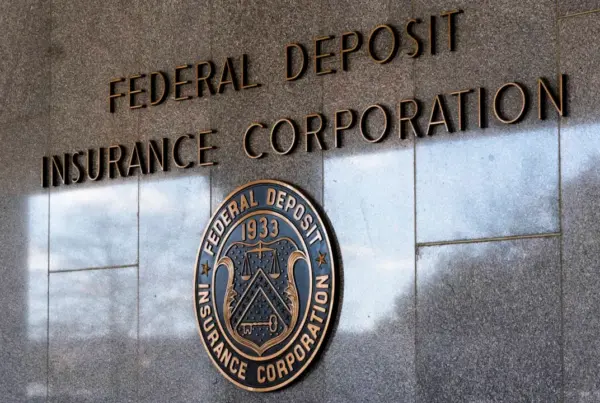FDIC’s Proposed Rule on Brokered Deposits: Essential Insights for Financial Institutions
On September 1, 2023, the Federal Deposit Insurance Corporation (FDIC) proposed a critical regulatory update regarding brokered deposits, which is set to reshape the landscape for financial institutions. This proposal is significant as it addresses the increasing complexities of deposit arrangements, particularly in light of the growing role of fintech companies in the banking sector. The proposed changes build upon existing regulations, particularly Section 29 of the Federal Deposit Insurance Act, which has historically governed brokered deposits. The primary concern driving this regulatory action is the potential risk that certain deposit arrangements may pose to the safety and soundness of insured depository institutions.
Key Regulatory Changes & Analysis
1. Expansion of the Definition of Deposit Broker
The proposed rule expands the definition of a deposit broker to encompass a broader range of entities.
- Previous Definition: Previously, a deposit broker was defined narrowly as an entity that solicits deposits from the public for placement with banks.
- New Definition: The updated definition includes entities that utilize digital platforms or other means to facilitate deposit placements, thereby capturing a wider array of financial intermediaries.
2. New Registration Requirements
The FDIC’s proposal introduces mandatory registration for all entities classified as deposit brokers.
- Registration Process: Entities qualifying as deposit brokers must register with the FDIC, enhancing regulatory oversight and accountability.
- Compliance Timeline: Affected parties will need to complete the registration process within 180 days of the final rule’s publication.
3. Enhanced Reporting Obligations
The proposed rule imposes new reporting requirements on banks and deposit brokers to improve transparency and regulatory oversight.
- Data Submission: Financial institutions will be required to submit detailed reports regarding brokered deposits, including information on their sources and characteristics.
- Reporting Frequency: The FDIC will specify the frequency of these reports, which may lead to increased compliance costs for institutions.
Impact on Financial Institutions
The regulatory changes will significantly affect banks, fintech companies, and other financial institutions involved in deposit placement.
- Increased Compliance Burden: Institutions will face heightened compliance obligations, necessitating operational adjustments and potential legal consultations.
- Market Dynamics: The changes may alter competitive dynamics in the deposit market, particularly for smaller banks that rely heavily on brokered deposits for funding.
Legal and Industry Implications
The proposed regulatory changes present several compliance challenges and potential legal risks for affected businesses:
- Compliance Costs: Financial institutions may incur substantial costs related to compliance, including investments in technology and personnel training.
- Regulatory Risks: Non-compliance could result in enforcement actions by the FDIC, including fines and restrictions on deposit-taking activities.
- Litigation Risks: The broader definition of deposit brokers may invite legal challenges from entities disputing their classification under the new rule.
Recommended Actions & Compliance Strategies
Affected parties should take proactive measures to ensure compliance with the new regulations:
- Review and Update Contracts: Financial institutions should review existing agreements with deposit brokers to ensure alignment with the new definitions and requirements.
- Prepare for Registration: Entities qualifying as deposit brokers must begin the registration process promptly to meet compliance deadlines.
- Engage Legal Counsel: Consulting with legal experts specializing in financial regulations can help navigate the complexities of the new requirements.
Public Comments
The FDIC is accepting public comments on the proposed rule until December 31, 2023. Stakeholders are encouraged to participate in this process to voice their concerns or support for the changes.
Conclusion & Next Steps
The FDIC’s proposed rule on brokered deposits represents a significant shift in the regulatory framework for financial institutions. Key takeaways include the expanded definition of deposit brokers, new registration requirements, and enhanced reporting obligations. The implementation timeline is expected to unfold over the next 12 months, with potential legal challenges anticipated as stakeholders adjust to the new regulatory landscape. Financial institutions should remain vigilant and responsive to these developments to mitigate risks and ensure compliance. As the regulatory environment continues to evolve, further updates from the FDIC may be forthcoming, necessitating ongoing attention from the industry.


